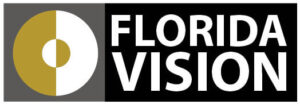The Importance Of Annual Eye Exams

Today, I wanted to talk about the importance of annual eye exams. Over the last 4-5 decades, medicine has seen a tremendous paradigm shift towards preventive care. Fueled by incredible technological, scientific, and pharmaceutical advances, health care providers are increasingly able to proactively provide care to patients rather than taking a reactive approach and waiting for diseases to progress to the point where symptoms become increasingly evident and damage, sometimes irreversible in nature, takes place. And while many people have embraced the idea of annual physical exams, and annual or semi-annual dental exams, the concept of annual eye exams has seen a much slower acceptance.
So why has the practice of annual eye exams seen a much slower adoption rate than that of annual physicals or annual dental exams? Although the answer is probably a bit more complicated than I am about to discuss, I believe much of the reluctance to embrace the importance of annual eye examinations centers around two key myths that ocular healthcare providers encounter on a daily basis:
MYTH #1: An eyeglass exam or contact lens exam is the same as a comprehensive eye exam.
MYTH #2: If my vision is good (20/20, etc.), my eyes must be healthy.
Let me discuss each of these myths in turn and then perhaps I can provide some insight into the importance of an annual eye exam.
MYTH #1: An eyeglass exam or contact lens exam is the same as a comprehensive eye exam.
Although having an eyeglass or contact lens prescription check can be included as part of a comprehensive eye exam, each of these exams simply tests the eyes focusing power in order to provide a means to sharper vision. Neither an eyeglass check, which is called a refraction, nor a contact lens examination, involve checking the internal structures of the eye. A dilated eye examination is required to properly examine the health of the eye and identify diseases of the eye as well as diseases of the body. A dilated eye examination allows doctors to evaluate each of the eye’s structures including even its blood vessels and nerves. And while there are instruments nowadays that some doctors will employ to aid in the evaluation of the eye; these instruments do not take the place of a thorough dilated eye examination performed by a qualified optometrist or ophthalmologist.
MYTH #2: If my vision is good (20/20, etc.), my eyes must be healthy.
Having good vision is certainly a positive sign when evaluating someone’s eye health however, there are many eye diseases that can present and progress with absolutely no symptoms and even in patients with excellent vision. Sadly, in some cases, a patient is not even aware they have a problem until it is too late to effectively treat the condition. For example, retinal tears and detachments can be present in an entirely symptom free patient with perfect vision. If these retinal problems are not addressed in a timely manner, a patient can progress to irreversible vision loss and even blindness. I have seen children and young adults that see extremely well yet, with a dilated eye examination, are found to have retinal tears and detachments that had they not been detected, would have progressed to significant vision loss. Diabetes, high blood pressure, autoimmune disease and cancer are more examples of conditions that can manifest themselves in the eye and many times without symptoms in patients with perfect vision. Glaucoma is yet another example of an eye disease that presents without warning signs and if not treated, can ultimately lead to blindness. Although many people are aware of glaucoma risk, many patients falsely believe that checking eye pressure alone is enough to catch glaucoma. Unfortunately, at least 20% of patients with glaucoma never have high pressure readings in office and thus, a dilated eye exam is essential to properly detect and manage the disease. I could continue to list many more disease conditions that present without warning in patients with good eyesight however, I hope that I’ve illustrated that perfect vision should never fool anyone into believing that they do not need regular eye check-ups.
So, in conclusion, even if you are not in need of new eyeglasses and even if you have perfect eyesight, it is still extremely important to make an annual dilated eye exam part of your yearly healthcare routine.

